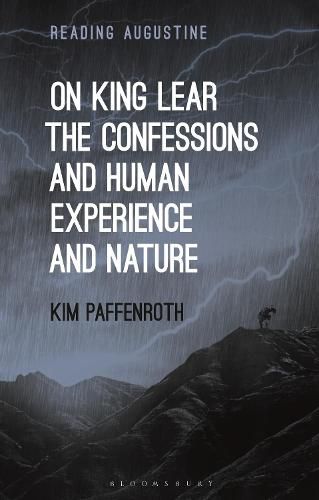Readings Newsletter
Become a Readings Member to make your shopping experience even easier.
Sign in or sign up for free!
You’re not far away from qualifying for FREE standard shipping within Australia
You’ve qualified for FREE standard shipping within Australia
The cart is loading…






Augustine’s Confessions and Shakespeare’s King Lear are two of the most influential and enduring works of the Western canon or world literature. But what does Stratford-upon-Avon have to do with Hippo, or the ascetical heretic-fighting polemicist with the author of some of the world’s most beautiful love poetry? To answer these questions, Kim Paffenroth analyses the similarities and differences between the thinking of these two figures on the themes of love, language, nature and reason. Pairing and connecting the insights of Shakespeare’s most nihilist tragedy with those of Augustine’s most personal and sometimes self-condemnatory, sometimes triumphal work, challenges us to see their worldviews as more similar than they first seem, and as more relevant to our own fragmented and disillusioned world.
$9.00 standard shipping within Australia
FREE standard shipping within Australia for orders over $100.00
Express & International shipping calculated at checkout
Stock availability can be subject to change without notice. We recommend calling the shop or contacting our online team to check availability of low stock items. Please see our Shopping Online page for more details.
Augustine’s Confessions and Shakespeare’s King Lear are two of the most influential and enduring works of the Western canon or world literature. But what does Stratford-upon-Avon have to do with Hippo, or the ascetical heretic-fighting polemicist with the author of some of the world’s most beautiful love poetry? To answer these questions, Kim Paffenroth analyses the similarities and differences between the thinking of these two figures on the themes of love, language, nature and reason. Pairing and connecting the insights of Shakespeare’s most nihilist tragedy with those of Augustine’s most personal and sometimes self-condemnatory, sometimes triumphal work, challenges us to see their worldviews as more similar than they first seem, and as more relevant to our own fragmented and disillusioned world.